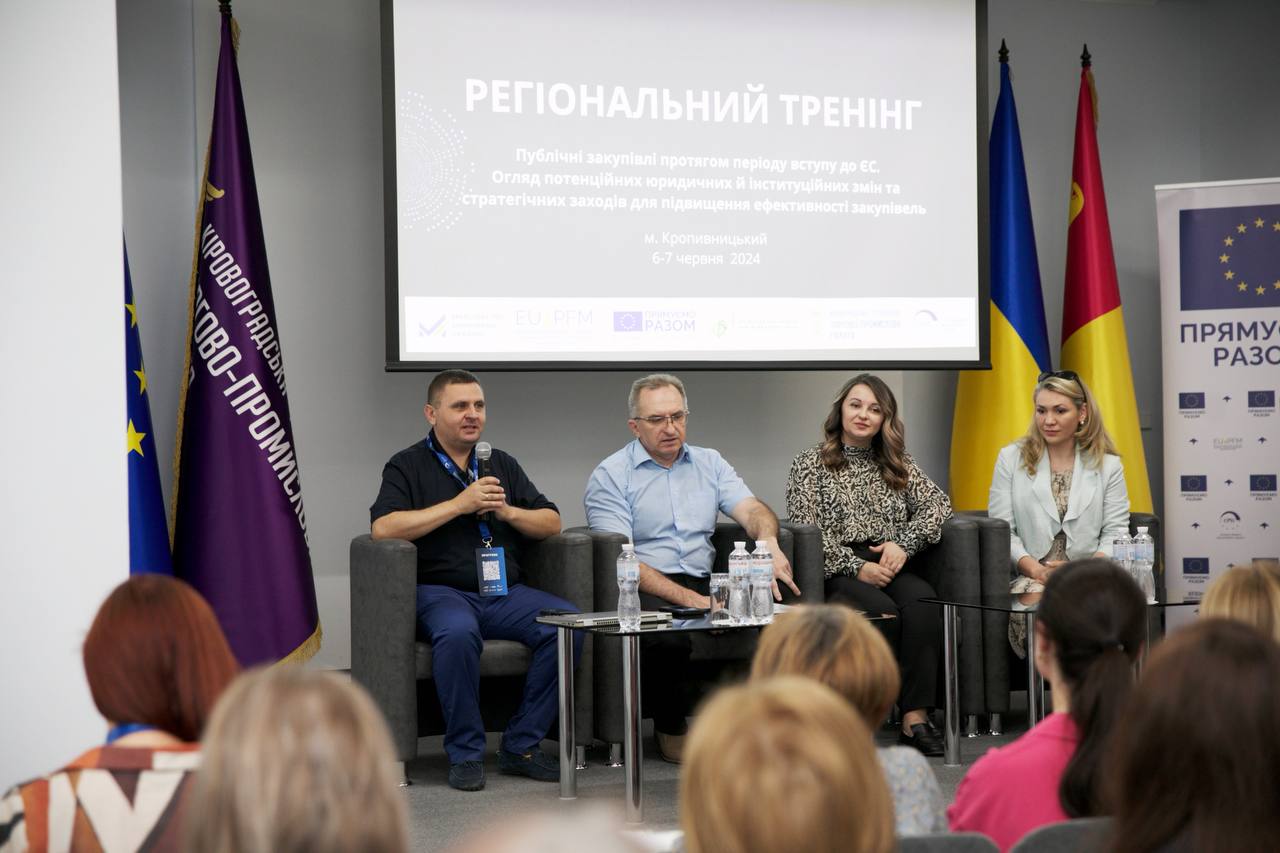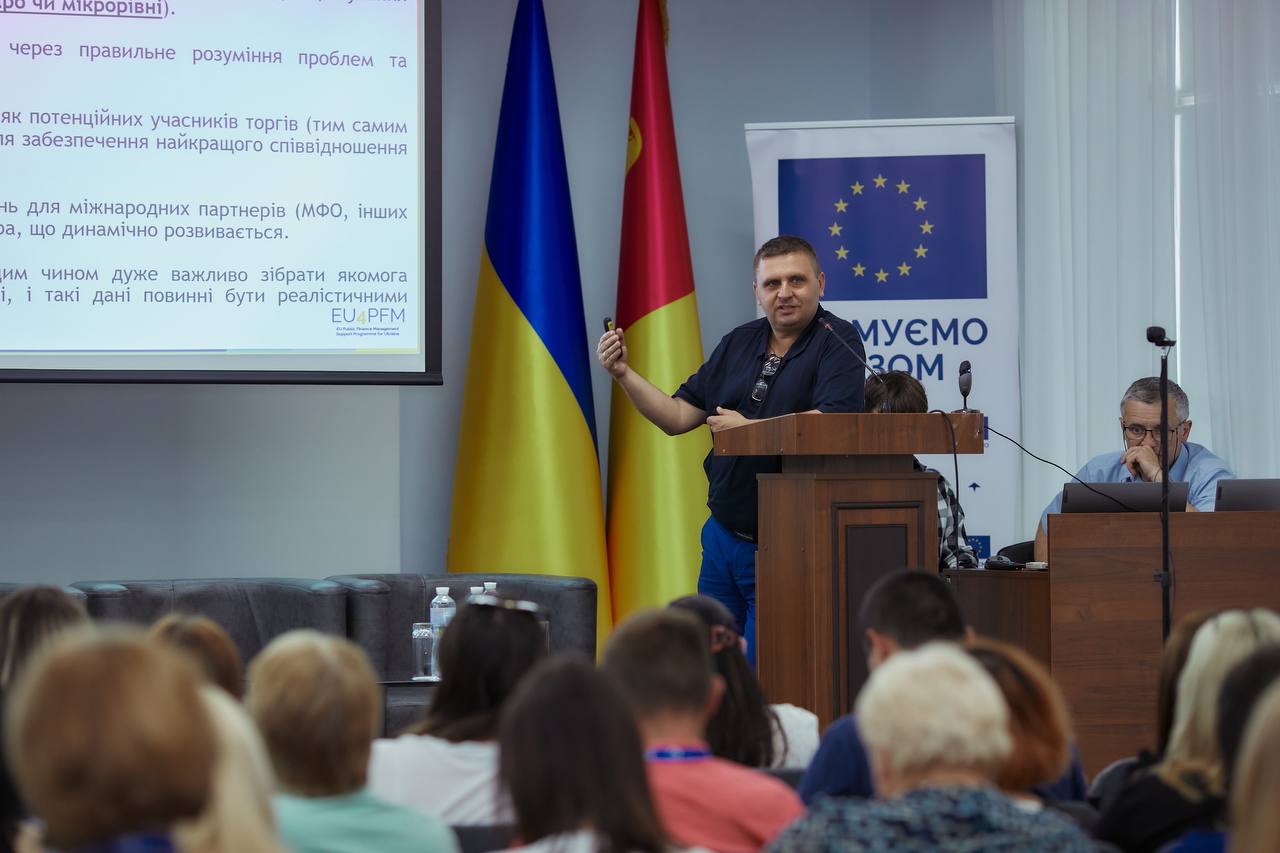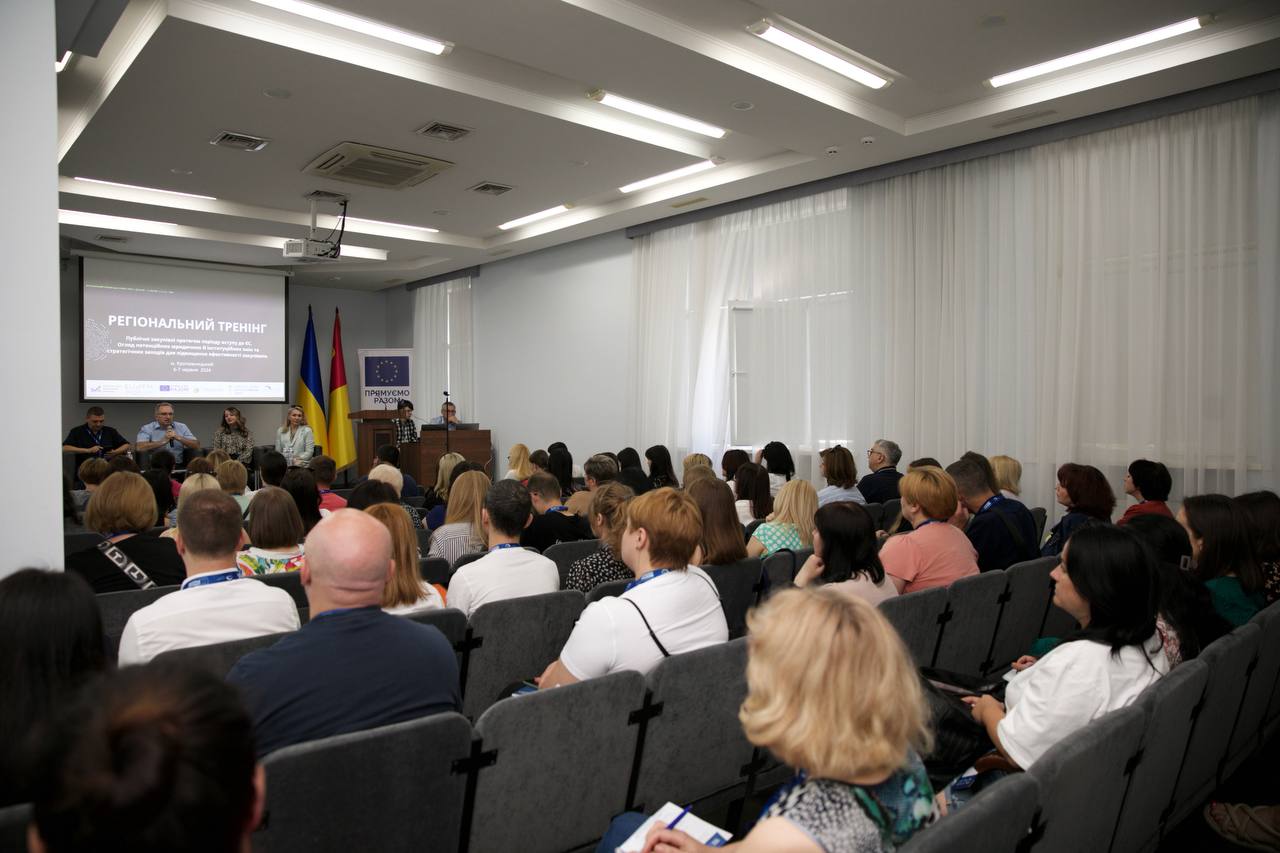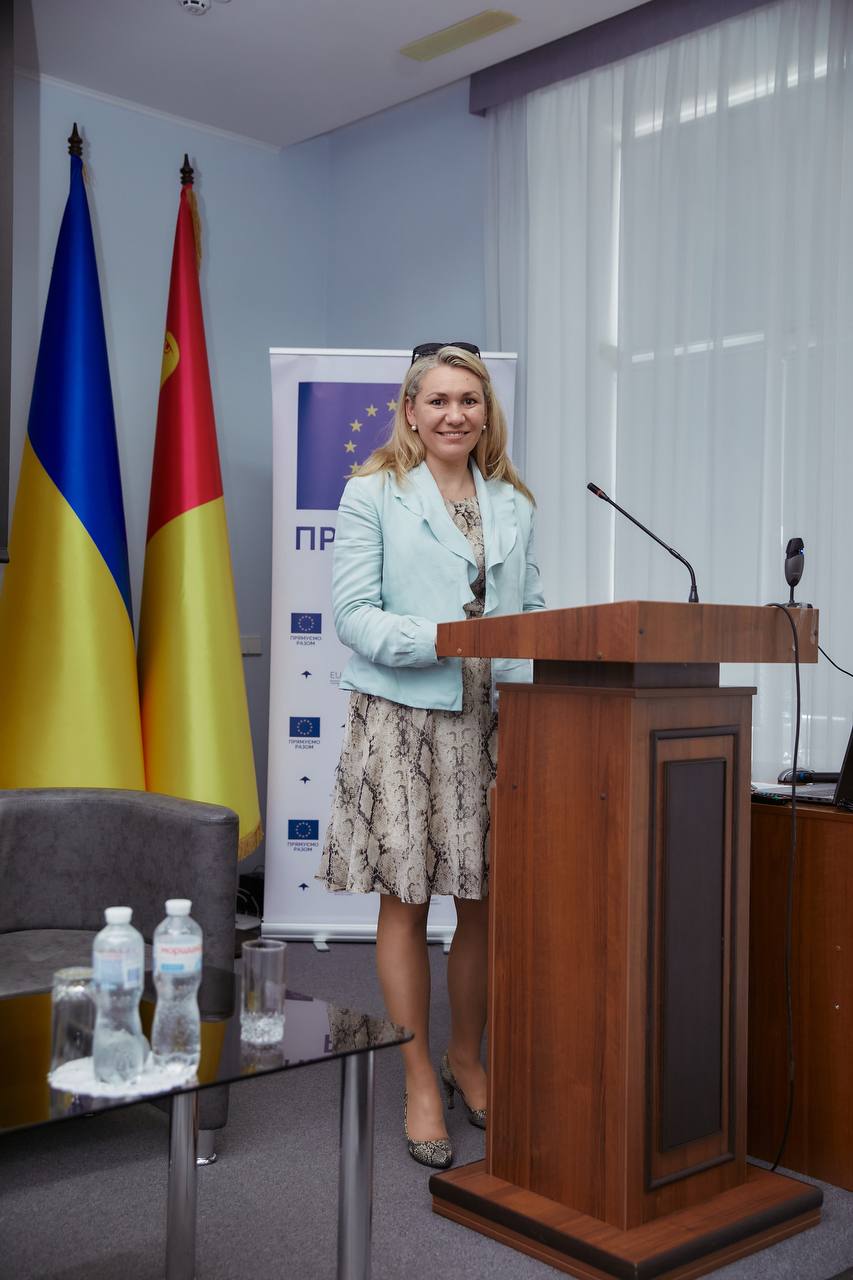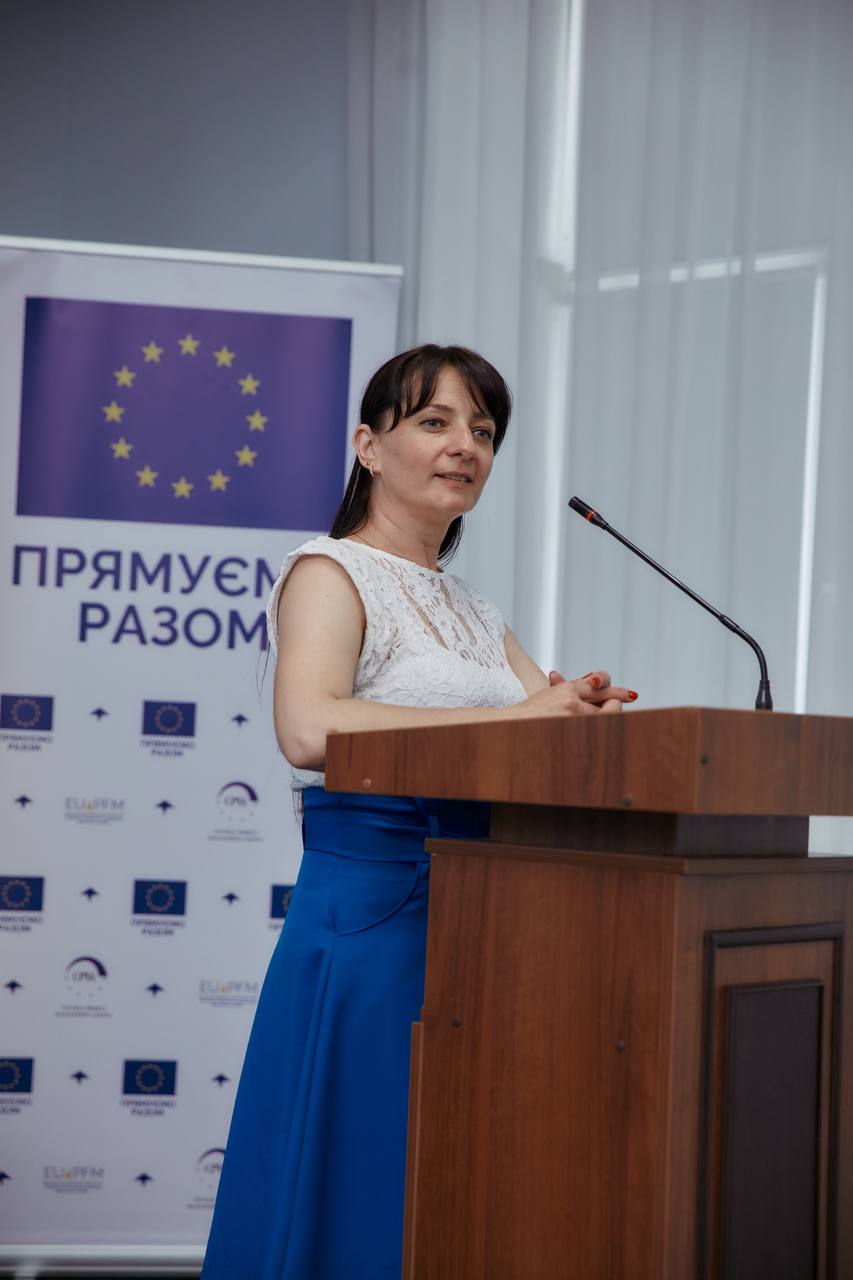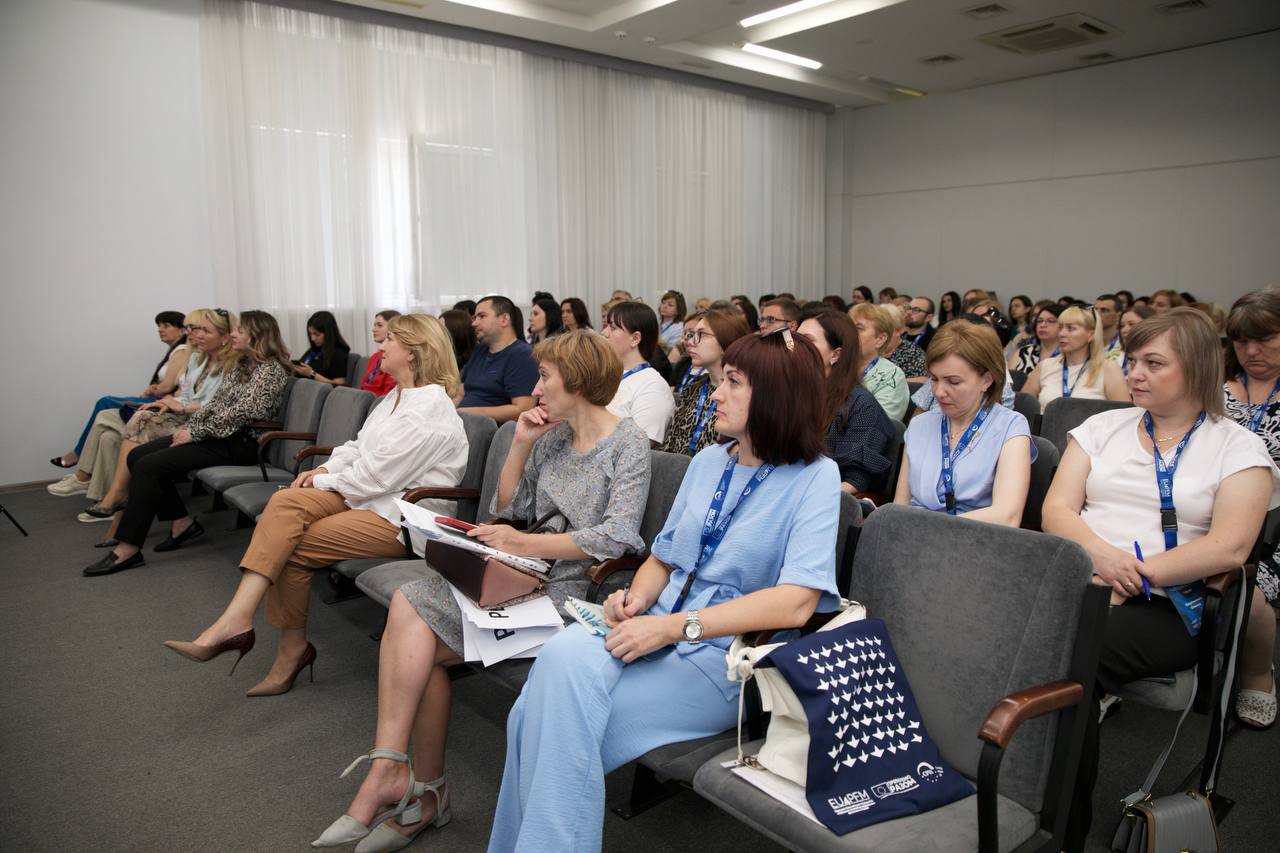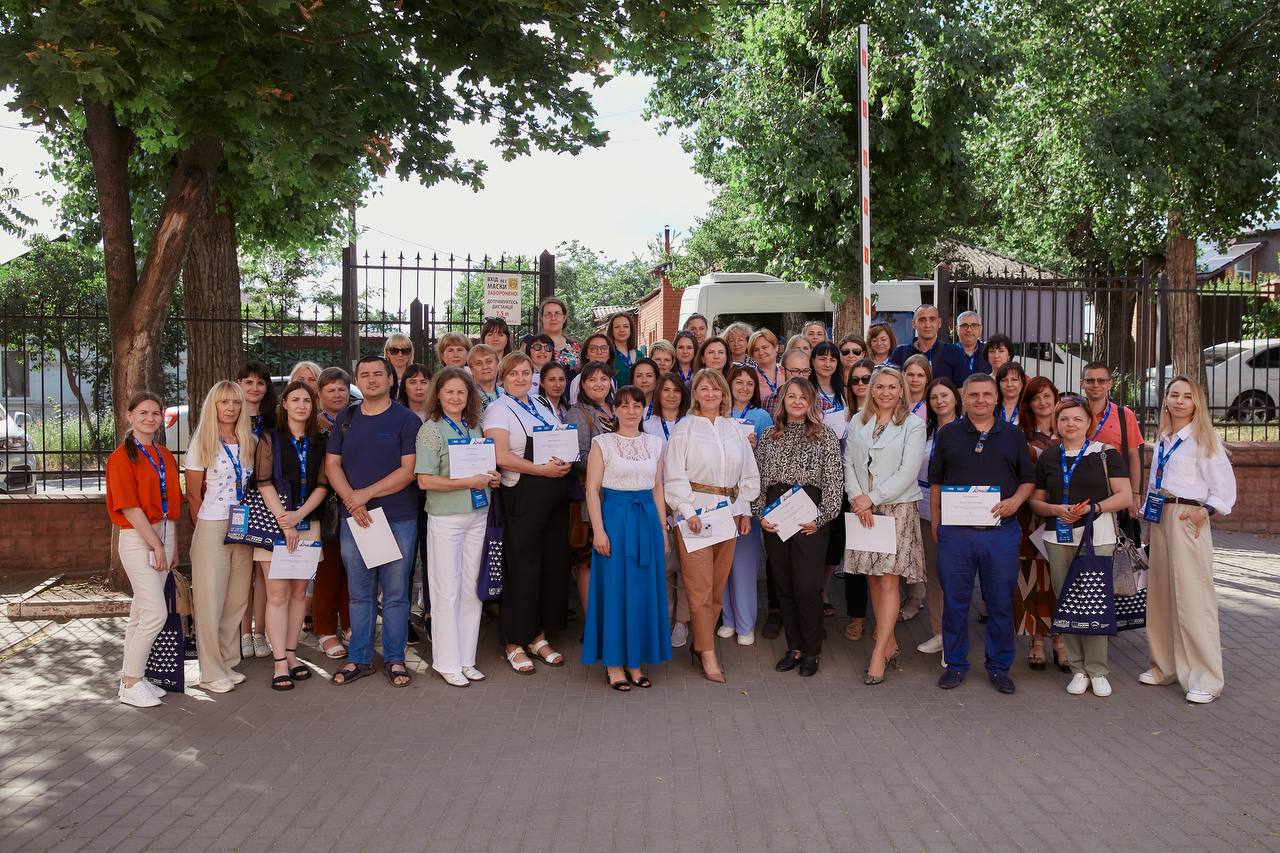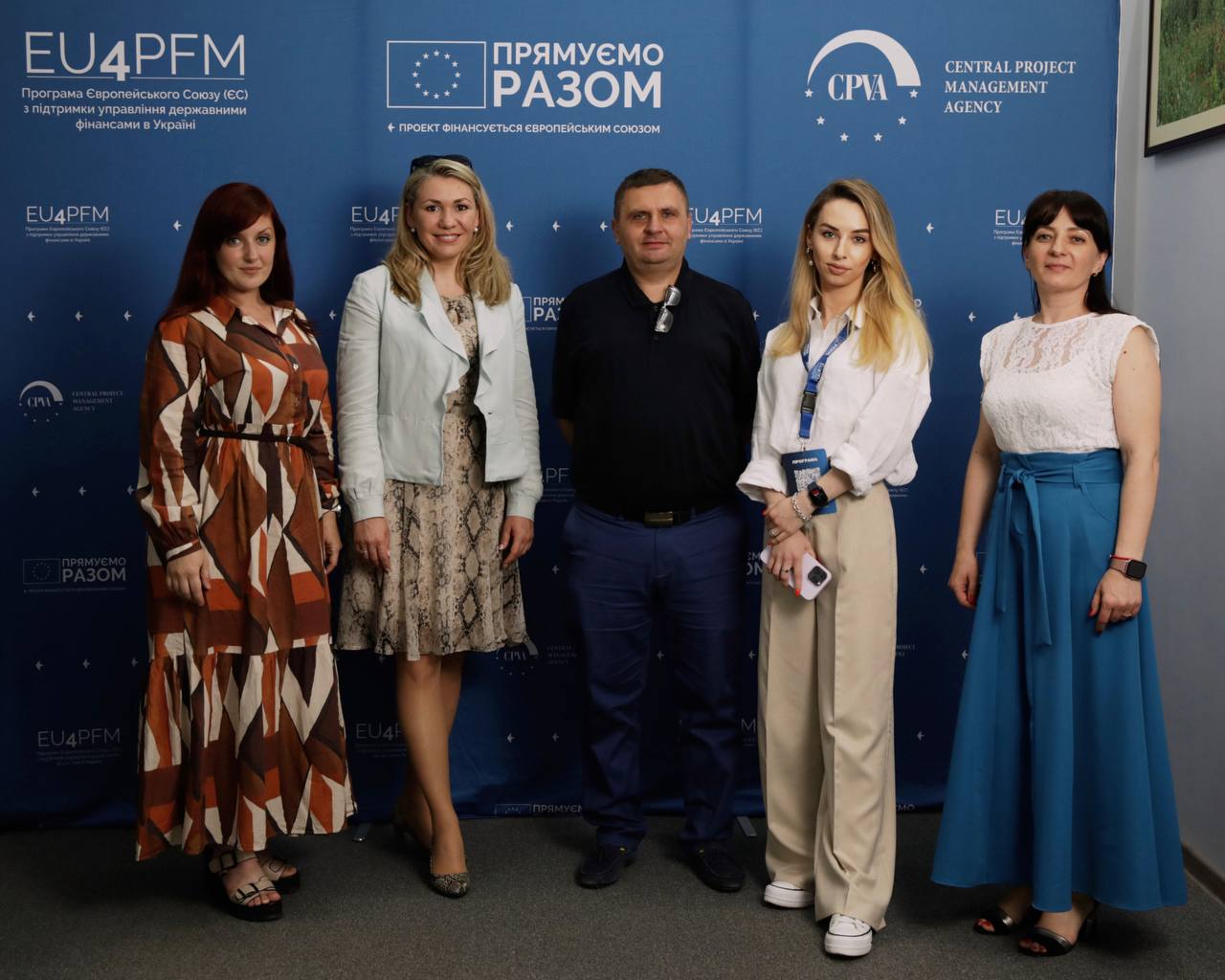Public procurement plays one of the key roles in Ukraine’s EU accession negotiations
On 6 June, the first regional training on “Public Procurement in the EU accession process. Overview of potential legal and institutional changes and strategic measures to improve procurement efficiency” took place in Kropyvnytskyi.
The event was organised under Component 2 “Public Procurement” of the EU4PFM Programme. The training gathered representatives of the Ministry of Economy of Ukraine, the Antimonopoly Committee of Ukraine, the Kirovohrad Regional Military Administration, EU4PFM experts, representatives of the Kirovohrad Regional Chamber of Commerce and Industry, as well as procurement stakeholders from Kirovohrad, Mykolaiv, Dnipropetrovsk and Kherson regions.
The key goal of the regional training session is to establish effective communication with procurement stakeholders on the main measures implemented under the Public Procurement Strategy and Action Plan (CMU Regulation), as well as to familiarise them with the latest changes in legislation in the context of Ukraine’s integration into the EU. Thus, there is a need to raise awareness among procurement stakeholders about measures aimed at modernising and professionalising public procurement.
Opening the event, Oleksandr Shatkovskyi, EU4PFM Component 2 Senior Legal Expert on Public Procurement, stressed that the negotiations on Ukraine’s accession to the EU will start with the negotiating chapter on public procurement. “The issue of efficient use of budget funds relates, among other things, to public procurement. That is why the ‘flashing’ of legislation, rules and stabilisation of these rules in the procurement sector is extremely important”, the expert added.
Ideas and changes made at the central level should be based on the experience and needs of the regions. Feedback from public purchasers across Ukraine is essential for the coordinated work of both the Ministry of Economy and the EU4PFM experts.
Serhiy Sheremet, Deputy Head of the Kirovohrad Regional Military Administration, said in his opening remarks: “Ukraine must fulfil a number of conditions for joining the EU. Adapting and improving the regulatory framework is one of the areas we are working on today. In general, the volume of funds in the procurement sector in the period before the full-scale invasion was about 18% of GDP. In wartime, it dropped to around 15%, but still remains quite significant and has an impact on both business in our country and the economy as a whole. With the start of the full-scale invasion, it became clear that public procurement legislation did not always take into account the specifics of procurement in this difficult period. Therefore, the government had to respond promptly to such changes, and a number of amendments were made to our regulatory framework in terms of public procurement, as we have seen, and this process continues to this day. Today’s meeting is a confirmation of that.”
Tetiana Mishta, Deputy Director of the Public Procurement and Competitive Policy Department of the Ministry of Economy, said: “In the extremely difficult conditions in which we find ourselves, the profession of a purchaser is gaining a new, more powerful meaning. The quality of purchasers’ work determines how we secure our state, our territorial communities and the welfare of our society. Today, our role as representatives of the Ministry of Economy is to share with you the developments in procurement legislation that have been developed over the past two years in the context of the war, and to share with you our plans approved by the Government’s Strategy for the Development of Public Procurement”.
The EU4PFM Programme continues to support its partner institutions in reforming and developing Ukraine’s public finance system and accelerating the EU accession process.


